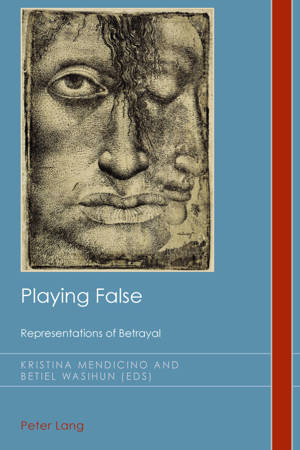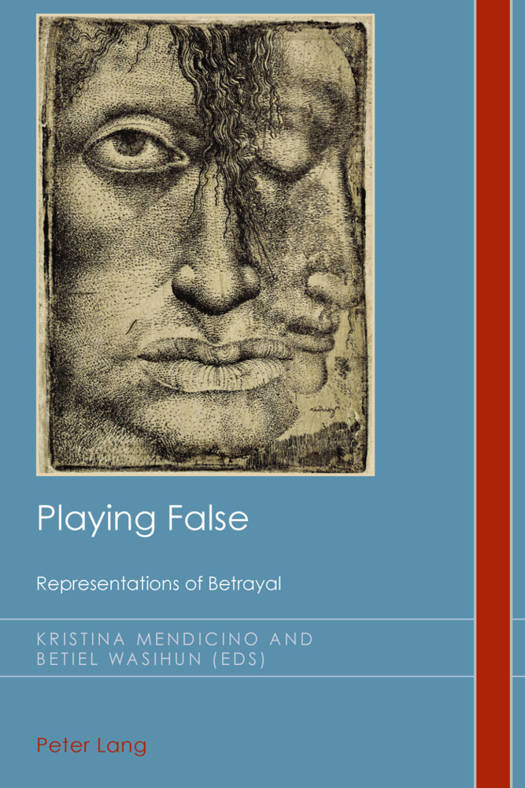
- Afhalen na 1 uur in een winkel met voorraad
- Gratis thuislevering in België vanaf € 30
- Ruim aanbod met 7 miljoen producten
- Afhalen na 1 uur in een winkel met voorraad
- Gratis thuislevering in België vanaf € 30
- Ruim aanbod met 7 miljoen producten
Zoeken
Playing False; Representations of Betrayal
Representations of Betrayal
€ 91,95
+ 183 punten
Omschrijving
Betrayal has never gone out of fashion. It is a ubiquitous phenomenon - from antiquity to the present, from the realm of politics to the most personal relationships. This book gathers essays by scholars from the fields of philosophy, comparative literature, classics, English literature, German studies and film studies to develop a fresh dialogue on betrayal as a problem that, above all, concerns representation. In contradistinction to approaches that privilege a notion of betrayal as a political or personal event, the working premise of this book is that all betrayals presuppose representational strategies.
What are the conditions, structures, masks and moves that allow one to play false? This question is posed with special attention to the theological, political, ethical and theatrical dimensions of betrayal, as they emerge in specific texts throughout the Western tradition. Works by Chariton, Seneca, Chaucer, Machiavelli, Shakespeare, Kant, Goethe, Schiller, Hegel, Kleist, Hamsun, Pound, Benjamin, Borges, Koestler, Roth, Bruno Dössekker alias Binjamin Wilkomirski and Fassbinder take centre stage in these diverse examinations of betrayal.
What are the conditions, structures, masks and moves that allow one to play false? This question is posed with special attention to the theological, political, ethical and theatrical dimensions of betrayal, as they emerge in specific texts throughout the Western tradition. Works by Chariton, Seneca, Chaucer, Machiavelli, Shakespeare, Kant, Goethe, Schiller, Hegel, Kleist, Hamsun, Pound, Benjamin, Borges, Koestler, Roth, Bruno Dössekker alias Binjamin Wilkomirski and Fassbinder take centre stage in these diverse examinations of betrayal.
Specificaties
Betrokkenen
- Uitgeverij:
Inhoud
- Aantal bladzijden:
- 348
- Taal:
- Engels
- Reeks:
- Reeksnummer:
- nr. 20
Eigenschappen
- Productcode (EAN):
- 9783034308670
- Verschijningsdatum:
- 17/10/2013
- Uitvoering:
- Paperback
- Formaat:
- Trade paperback (VS)
- Afmetingen:
- 155 mm x 226 mm
- Gewicht:
- 498 g

Alleen bij Standaard Boekhandel
+ 183 punten op je klantenkaart van Standaard Boekhandel
Beoordelingen
We publiceren alleen reviews die voldoen aan de voorwaarden voor reviews. Bekijk onze voorwaarden voor reviews.










